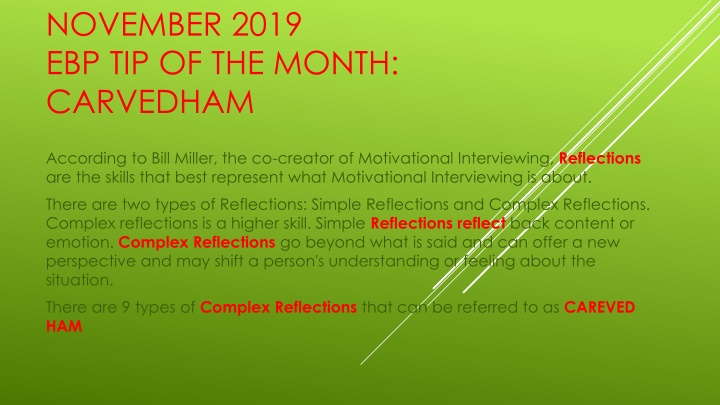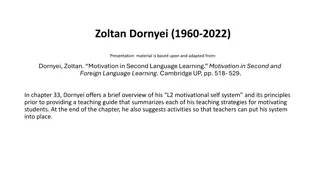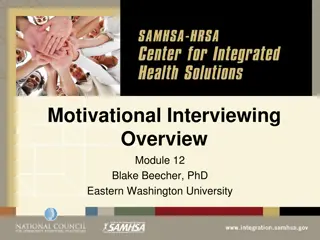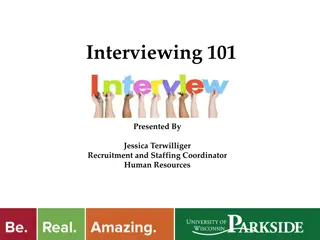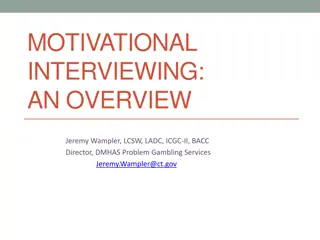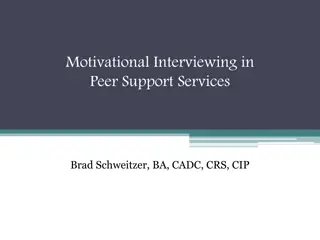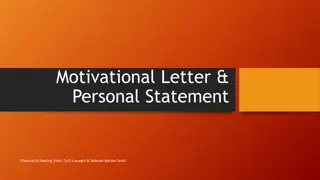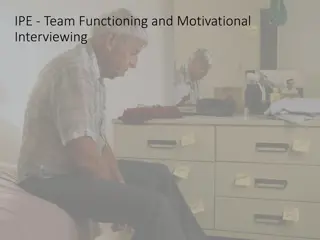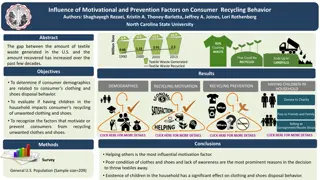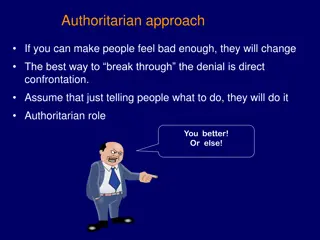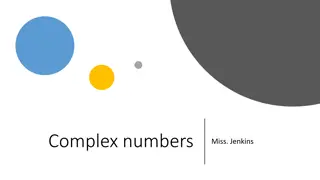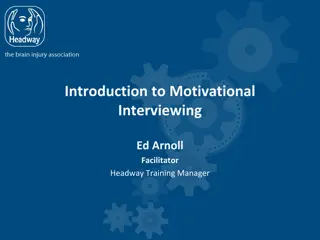Mastering Complex Reflections in Motivational Interviewing
Bill Miller, co-creator of Motivational Interviewing, emphasizes the importance of Reflections in MI, categorizing them into Simple and Complex Reflections. Complex Reflections, like the CAREVED HAM framework, are advanced skills that delve deeper into client conversations. The C.A.R. technique involves Continuing a paragraph, Amplifying meaning or emphasis, and Reframing situations. Practice statements showcase applying these techniques to enhance client engagement and foster positive change.
Download Presentation

Please find below an Image/Link to download the presentation.
The content on the website is provided AS IS for your information and personal use only. It may not be sold, licensed, or shared on other websites without obtaining consent from the author.If you encounter any issues during the download, it is possible that the publisher has removed the file from their server.
You are allowed to download the files provided on this website for personal or commercial use, subject to the condition that they are used lawfully. All files are the property of their respective owners.
The content on the website is provided AS IS for your information and personal use only. It may not be sold, licensed, or shared on other websites without obtaining consent from the author.
E N D
Presentation Transcript
NOVEMBER 2019 EBP TIP OF THE MONTH: CARVEDHAM According to Bill Miller, the co-creator of Motivational Interviewing, Reflections are the skills that best represent what Motivational Interviewing is about. There are two types of Reflections: Simple Reflections and Complex Reflections. Complex reflections is a higher skill. Simple Reflections reflect back content or emotion. Complex Reflections go beyond what is said and can offer a new perspective and may shift a person's understanding or feeling about the situation. There are 9 types of Complex Reflections that can be referred to as CAREVED HAM
THE FIRST 3 COMPLEX REFLECTIONS ARE THE C A R: 1) CONTINUING A PARAGRAPH: INTERVIEWER FINISHES WHAT THE CLIENT IS SAYING IN THE SPIRIT OF MOVING THE CONVERSATION FORWARD. 2) AMPLIFICATION IN MEANING OR EMPHASIS: INTERVIEWER USES LANGUAGE THAT IS EITHER STRONGER OR WEAKER IN MEANING OR IN EMPHASIS THAN THE CLIENT USED. 3) REFRAMING IN A DIFFERENT LIGHT: INTERVIEWER REFLECTS THE SAME SITUATION THAT IS DESCRIBED, BUT PUTS IT IN A DIFFERENT LIGHT THAN THE CLIENT HAD THOUGHT OF PREVIOUSLY.
Statement: I want to lose weight, but I just love to eat, especially sugary treats, I can t stop myself when they are in the house, I know it s not good for me. 1. CONTINUE THE PARAGRAPH (OR SENTENCE): And now you are thinking it s time take your first step towards change. 2. AMPLIFICATION (POSITIVE OR NEGATIVE) IN MEANING OR EMPHASIS a. Your health is not being affected at all by your eating habits. b. There is no room to make changes in what you are eating. 3. REFRAME Sounds like this is an opportunity to take your health seriously. CLICK FOR AUDIO
Im glad I got probation and not jail however coming to see you every week, picking up my kids, and going to work is really hard for me to do. I don t think I can do all of them. I like to pay my restitution because I know I was wrong but I also have to pay child support and rent. I m learning a lot from going to treatment and I m enjoying sobriety but I find hard to stay away from my old criminal friends since I ve known them all my life. PRACTICE STATEMENTS. TRY TO USE THE CAR REFLECTIONS ON THESE STATEMENTS
